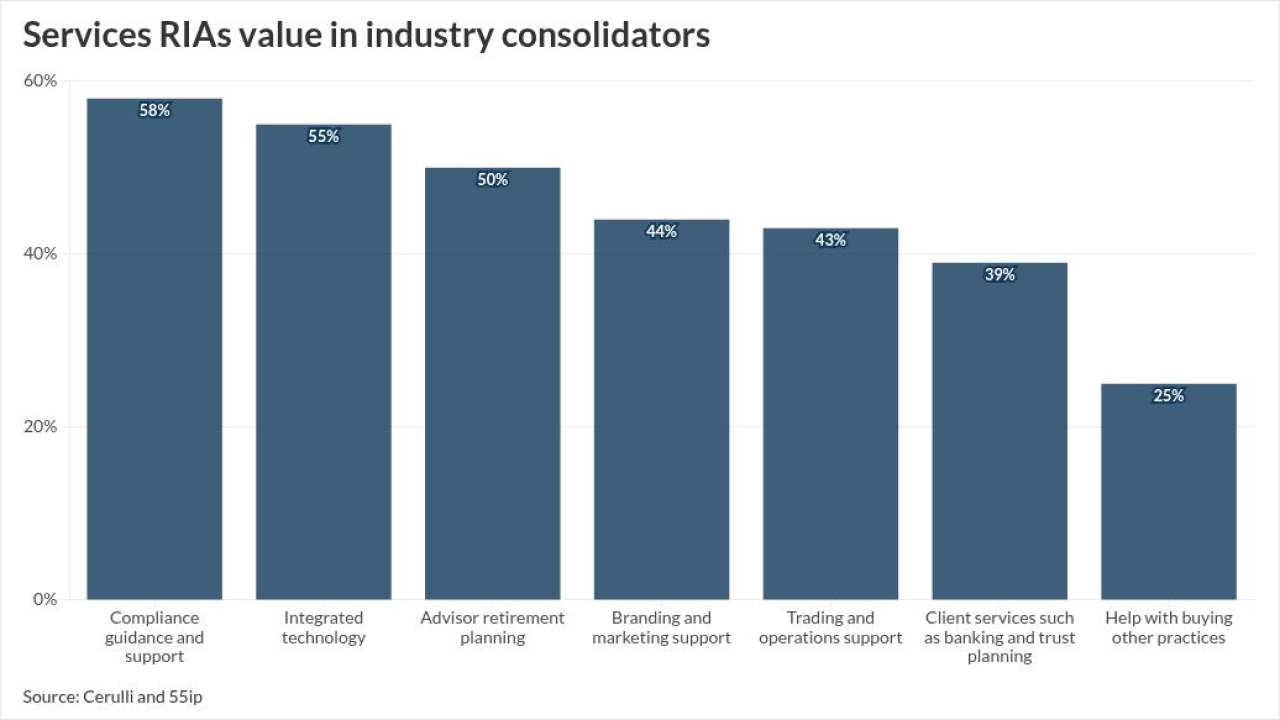A former top broker at Merrill Lynch has reached a settlement with FINRA after decamping to the RIA world after allegations emerged that he had cheated on his continuing education requirements.
In reaching a settlement with the regulator late last month, Bruce K. Lee accepted a suspension from a sector in which he no longer practices — a reminder that a seemingly minor infraction like fudging CE coursework can bring an end to a career on Wall Street.
FINRA says Lee directed two junior associates to take 29 continuing education courses in his name over a period of roughly four years, from 2014 through March 2018.
Merrill Lynch terminated Lee's employment in April 2018, citing a "failure to personally complete mandatory firm compliance training" as a reason for his firing in a filing submitted to FINRA the following month.
Under the settlement, Lee accepted a suspension of 18 months, during which he is not permitted to associate with any FINRA member firm, and agreed to a fine of $15,000.
However, less than three months after leaving Merrill, Lee announced that he had formed a new Chicago-based RIA, Keebeck Wealth Management, supported by RIA platform Dynasty Financial Partners.
"Bruce Lee is no longer affiliated with a FINRA organization," says Sally Cates, a spokeswoman for Dynasty, who noted that Lee's license with FINRA will expire in six months. "This has no impact on his business," she says.
FINRA mandates that brokers undergo two tracks of continuing education coursework. One, dubbed the firm element, is to be developed in-house and focus on relevant training needs the brokerage identifies in the annual assessment that registered firms are required to undertake.
The second, known as the regulatory element, is a computer-based training program that all registered persons are required to complete within 120 days of the second anniversary of their registration with FINRA, and every three years thereafter. Those modules focus on an array of topics under broad categories such as compliance, regulation and ethical sales practices.
But CE requirements in the brokerage world, as in many other professional spheres, are widely regarded as a nuisance; a checkbox exercise that satisfies a regulatory requirement without delivering the promised insights into firm policies or how to navigate compliance challenges, according to Bill Singer, a veteran securities attorney who runs the Broke and Broker blog.

"I think the best that most professionals would say about CE is we understand where the motivation comes from," he says. "Unfortunately, when the programs are eventually created they're generally viewed as a waste of time."
So, perhaps unsurprisingly, cheating on those requirements is "pervasive" on Wall Street, Singer says, noting that many such cases involve younger, female staffers who are cajoled by male bosses to sit in for their CE requirements.
Yet, in a quirk of Wall Street, despite the cavalier attitude that many in the industry take toward CE requirements, getting busted by FINRA for cheating on the coursework can severely damage a broker's chances of finding work, even though the penalties FINRA typically assesses in such cases — a brief suspension, a modest fine — are akin to a regulatory speeding ticket, Singer says.
In practice, the advisor is often fired from their firm, and can face a tough time trying to hitch up with another brokerage house.
"One of the odd things is the industry actually places more weight on the CE fines and suspensions than FINRA does," Singer says.
A past CE violation is a red flag for a firm's compliance department, signifying the broker's willingness to break the rules, as well as the potential for the unwelcome scrutiny a firm could face for bringing on an individual who has been penalized by FINRA in the past.
"They feel like it's basically spitting in the face of the compliance department," Singer says.
That’s why CE violations, modest though they might seem in comparison to instances of fraud or theft, can amount to "career killers," effectively ending a broker's days on the Street, he says. As a result, it's not uncommon for targets of CE cases to abandon the brokerage side of the industry and jump, as Lee did, to an RIA model, according to Singer.





